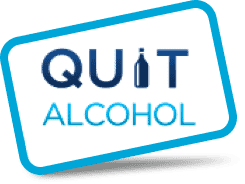At some point in time, almost everybody decides to experiment with an addictive substance. This can include alcohol, illicit drugs, and/or nicotine.
This leads to one very important question: why do some people develop an addiction while others do not? While there is no definitive answer to this question, some of the answer may be based on gender.
We’ve Helped Thousands of Individuals Overcome Drug and Alcohol Addiction
Does Gender Play a Role in Addiction?
Many people are under the impression that substance abuse is a “male problem.” While it is true that many men suffer from an addiction, the same can be said for women.
According to an article published by ABC News, “substance abuse related illnesses are responsible for the deaths of 200,000 American women annually and more than 4 million women are in need of treatment for their addiction.”
Numbers like these prove that substance abuse and addiction is not only a man’s problem. Millions of women are impacted in the same way.
Does Estrogen Play a Role?
More and more research studies are showing that estrogen can play a big role in addiction. Most addictive substances have the power to cause the release of dopamine. This holds true in both men and women.
After many years of research, it is becoming widely believed that estrogen can influence the amount of dopamine released by the body, in reaction to an addictive substance.
The Drug in Question
The differences in addiction between men and women are not cut and dry for many reasons, including the fact that every drug impacts the mind and body in a different way.
For example, cocaine abuse varies by gender. Studies show that women often use cocaine when they are unhappy with their life and feeling depressed. On the other side, men typically turn to this drug when they are feeling good. They use cocaine in hopes of taking their good feeling to the next level.
Many people may not consider nicotine a drug, since it is legal, however, it is quite addictive. Just the same as cocaine, there are sex specific addiction patterns associated with nicotine use, such as smoking cigarettes.
Women often smoke to suppress their appetite and regulate their mood, especially when they are feeling down. Many men smoke for a way to improve their attention to detail and relieve feelings of depression and agitation.
Treating an Addiction
When a person seeks professional treatment for any type of addiction, they hope they will be treated like an individual every step of the way.
Since the nature of addiction is unique in both men and women, treatment strategies must be altered. In other words, a treatment plan that has been proven successful for men may not work on a woman with the same type of addiction.
The most experienced and reputable addiction treatment facilities have the knowledge necessary to treat both men and women, regardless of the substance they are addicted to or the steps they have attempted to take in the past.

